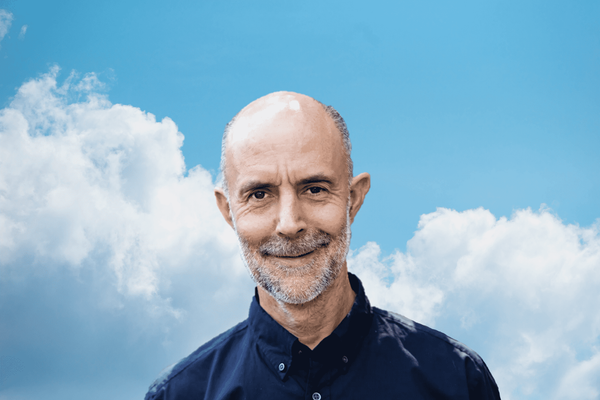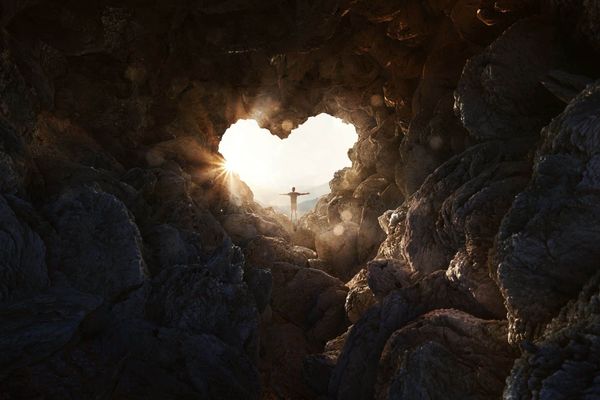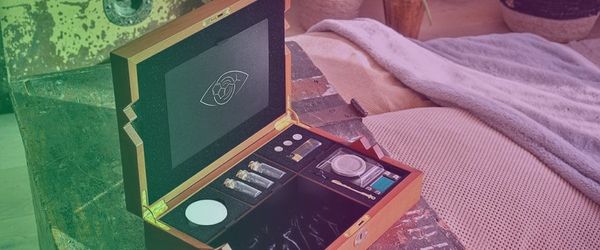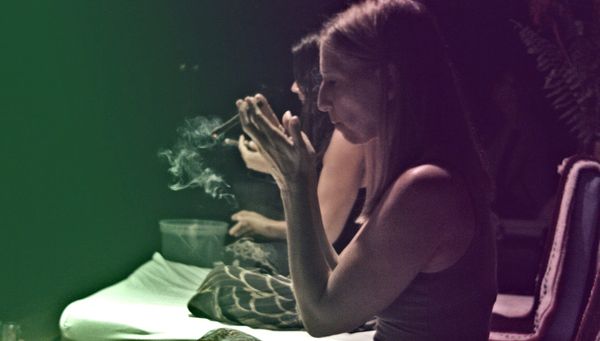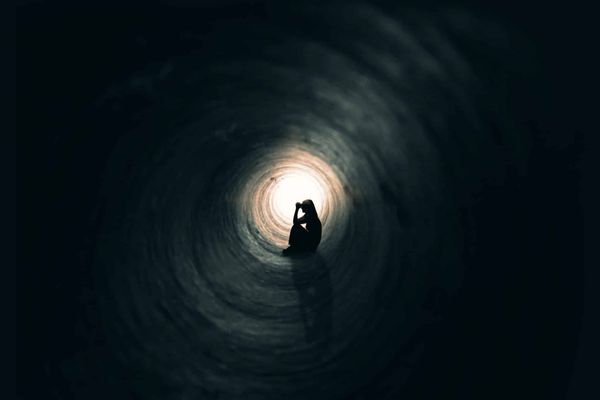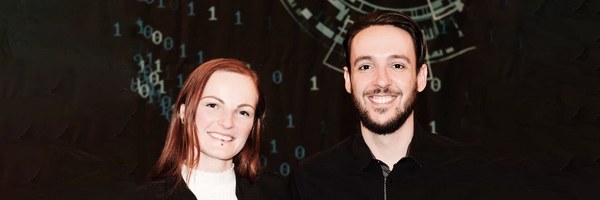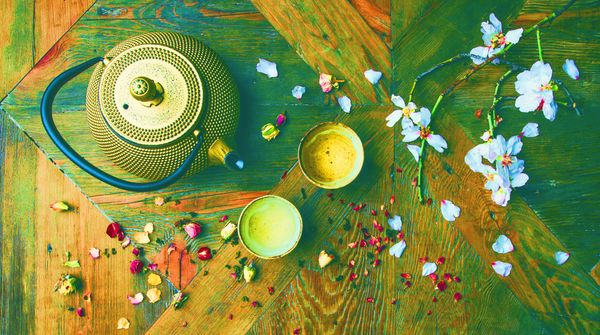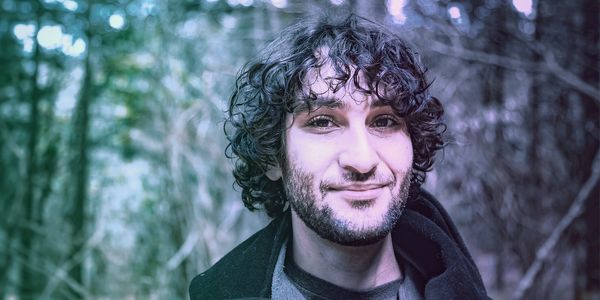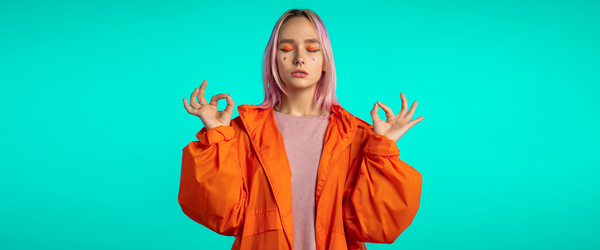Eric Brown • • 7 min read
Learning How to Human Effectively
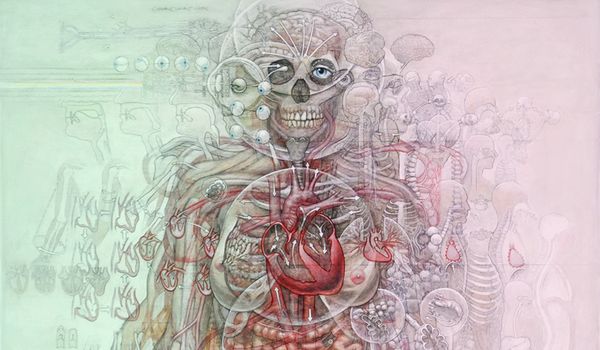
You’re likely here because you’ve spent some time, or are currently spending some time, working on yourself.
Trying to improve, refine, update, evolve.
Why?
Why do you put all of this effort into yourself? To what end?
In some way or another, the answer is likely this: “I want to learn how to do the human thing better.”
What does it mean to be human?
Some of us laugh at this question. How trivial, how silly — isn’t it obvious? If it is, then answer the question. What does it mean to be human?
This doesn’t even introduce the idea of how to do it well, once we understand what it is.
Is the accumulation of wealth the meaning of being human? Is the pursuit of reckless hedonism the purpose of your human existence? What is it? How do you know that’s the point?
It’s not such an easy question.
Figuring Out How to Human
I recently went deep into the jungles of Peru, for a 3-week plant diet, a period of extreme isolation, fasting, sensory deprivation, and powerful ceremonial psychedelic experience.
It was intense. For those who would like to learn more, I’ve made all my notes from the experience available publicly online.
But over and above any surface intention were the driving questions of: “What does it mean to be human, and how can I do it well?”
We are social creatures, and if you live in any semblance of modern society, you always find yourself in relationship with other humans. This automatically imparts a bunch of roles and responsibilities to you.
Son. Brother. Partner. Husband. Employee. Citizen. Pedestrian.
All of these roles come with certain expectations, certain ways of being and relating when you conduct yourself in public. We can spend days and weeks on end simply playing out the expectations of roles we have, instead of acting from our own individual sovereignty.
If you want to figure out who you are, what it means to simply be a human on this planet, extreme isolation and sensory deprivation are highly conducive to this process.
While I was digging into this question, I wrote the following passage in my notes:
“Our collective focus is always on what to do with our one human life, how to actualize all of our potential.
But this carries in an assumption we can’t immediately grant: that everyone knows how to be human, period.
We take it as a given but it’s not.
Things like emotional intelligence, self-inquiry, teamwork, shadow integration, communication, service, health, symbiosis with nature. These things are core to being human and yet I’ve met almost no one who embodies all of them.
Let alone the discussion of what it means to be a good/exemplary human.
If our lives should focus on anything at all, it should be how to be completely and fully human. Or the process should at least start there.
Society is focused on making humans into machines (specific, routine) and machines into humans (general, adaptive). Why? The purpose of machines and technology should be to create tools that allow humans to explore even deeper what it means to be human and explore the depths of the human experience.
We need a human academy, a dojo for humanity, the school of life, an incubator for fully realized and embodied beings. Only once this work is complete should we venture into what you should do — because as we see, without this, the systems and projects created are mis-aligned, self-destructive, and overly strenuous.
Only with full humans do we have even a chance of creating the holistic and integrated systems/projects/communities necessary to attain symbiosis with nature and make progress in realms of being that actually matter/are beneficial.”
— Eric Brown, Dieta Diaries Day 18.
Why focus on what the meaning of your human life is if you don’t even know what it means to be human in the first place?
Are emotions an important part of the human experience? If yes, why do you try so hard to avoid feeling them? If no, does the sadness you feel at the passing of a family member mean nothing?
Where does hard work and contributing to society come into the equation? Are you obligated to do this? Is a central part of being human contributing to others, or simply serving yourself?
There are even more basic questions that remain unanswered. Is having a body what makes me human? Is it my emotions? My consciousness? The feeling of having a Self? Which of these is the essence of my ‘human-ness’? Or are they all an important part of being human, and therefore I should cultivate all of them?
If we should be spending our time and energy focused on anything, it should be these fundamental questions.
Do You Want to Be Human?
There is another fundamental question here: when we do discover what it means to be a human, do you actually want to be one?
For many it seems that the answer would be no. Our culture is infected with escapism, people trying their hardest to run away from life, run away from their human experience. To them it is a burden, something to be avoided, let go of at all and any cost.
Or look at the techno-elite right now and the pursuit of the singularity, the merging of man and machine. The cyborg future. If a part of being human is having a human body, then we’re focused very diligently right now on trying to escape our fundamental human-ness. We want to be ‘more’ or ‘better’ or simply just ‘different’.
And there’s a case to be made for it. After all, the default state of human creatures isn’t exactly pleasant.
This is another entry:
”The natural state of a human being, programmed through millions of years of biological evolution, is something like: alert with low-level paranoia.
We always had to watch our surroundings, to consider where we will find food, all of that fun stuff.
So the states that many of us would like: security, equanimity, satisfaction — are only obtainable through not only intentional and deliberate initial work and constant efforts to maintain, but also in overcoming and reprogramming deeply, deeply ingrained biological and psychological mechanisms.
This is no small feat, but it is possible to achieve.
This is also why we are highly tribal, care so much of others opinions, play group dynamic games — because if you were exiled from the tribe, you were as good as dead.
Humans are tribal creatures and don’t fare very well on their own. So social rejection = death. This too is a deep program and there’s many layers of diligent work to overcome, though it too is possible.”
— Eric Brown, Dieta Diaries Day 8
Doesn’t sound too appealing, does it?
No wonder we’re trying so hard to escape our own human condition. Look at the way we word even that phrase, the human condition, like it’s some affliction that we are doomed to suffer.
How to Learn How to Human
These are fundamental, existential, species-level questions that we need to answer.
Where do we begin?
For those who are searching, who earnestly pursue the Truth of what it means to be human, we need outlets to do this. Tools and practices, systems and spaces that allow us to go deeply into ourselves and our communities and really come to terms with what it means to be human.
There have been a few practices that have come up that have helped me on my way, and please, if there is something that has helped you understand how to human, share it in the comments.
In no particular order:
- Circling and Authentic-Relating Practices: Expression, compassion, and community seem to be central to the human experience. Circling and authentic-relating practices help us get to the essence of this. With no goal, just extended group mindfulness, we explore the human experience in real time, and see ourselves mirrored back to us in a safe community. This is excellent for emotional processing, understanding others and self, and noticing internal reactions and processes unfolding.
- Psychedelic Experiences: There has been nothing as effective as the psychedelic experience in helping me cut to the core of what it means to be human. Particularly individual, isolated ceremonies where you turn inward and explore the depths of your own psyche. To really dig into value structures, programmed conditioning, emotional regulation and feeling, the nature of mind, reality, and consciousness, to feel the vitality and fragility of human existence — the psychedelic experiences puts your humanity on display, for the great mind of God and Being to judge, witness, and embrace.
- Challenges, Action, and Responsibility: There appears to be something fundamental to the human experience in taking action, overcoming challenges, and accepting levels of responsibility for self and others. Seek out the obstacles and opportunities that allow you to cultivate these in yourself. Do hard shit. Go out and act in the world. Contribute beyond yourself.
- Psychnautic Explorations: Psychonautics means sailors of the psyche. Navigators of the inner realms. Dive deep into your own consciousness and see what wants to arise. The nature of desire, of suffering, of emotions and thoughts, these will help you understand what it means to be human, what it is like to have a human experience, and where to move forward from knowing this.
The Need for Real Humans
We stand at a precipice, a unique time in human history. We have the power and technology of Gods. The ability to shape worlds, give and take life, and the access to any information that we wish to have.
We now need to move towards the love and wisdom of Gods. We do this through the starting point of a deep understanding of the human experience, what it means to be a human, and then building into how to be a good one.
History thus far has been a sort of blind stumbling into progress and discovery, but this free-wheeling exploration can survive no longer. We are now conscious of our incredible impact on the planet and on each other. We must make this collective evolutionary process conscious, and act with intention and perception and skillful right action.
We must discover, or re-discover, what it means to be human. How to do the human thing well. What humanity requires of each individual, and how we come together effectively as one great human family.
This is the work that we are being called to do. No longer can we fool around acting like we don’t know this. We must dig deep, and collectively discover who and what we are, and decide where we want to go from here.
This process starts with you, learning how to human.
If this piece resonated with you, considering taking a look through the complete Dieta Diaries. A deep exploration of the plant dieta process, the nature of Amazonian shamanism, and a behind-the-scenes look at an individual psyche as it deconstructed and reconstructed through the process of sacred surgery.

Eric Brown
I'm a creator, artist, writer, and experience designer. I help people become themselves.

